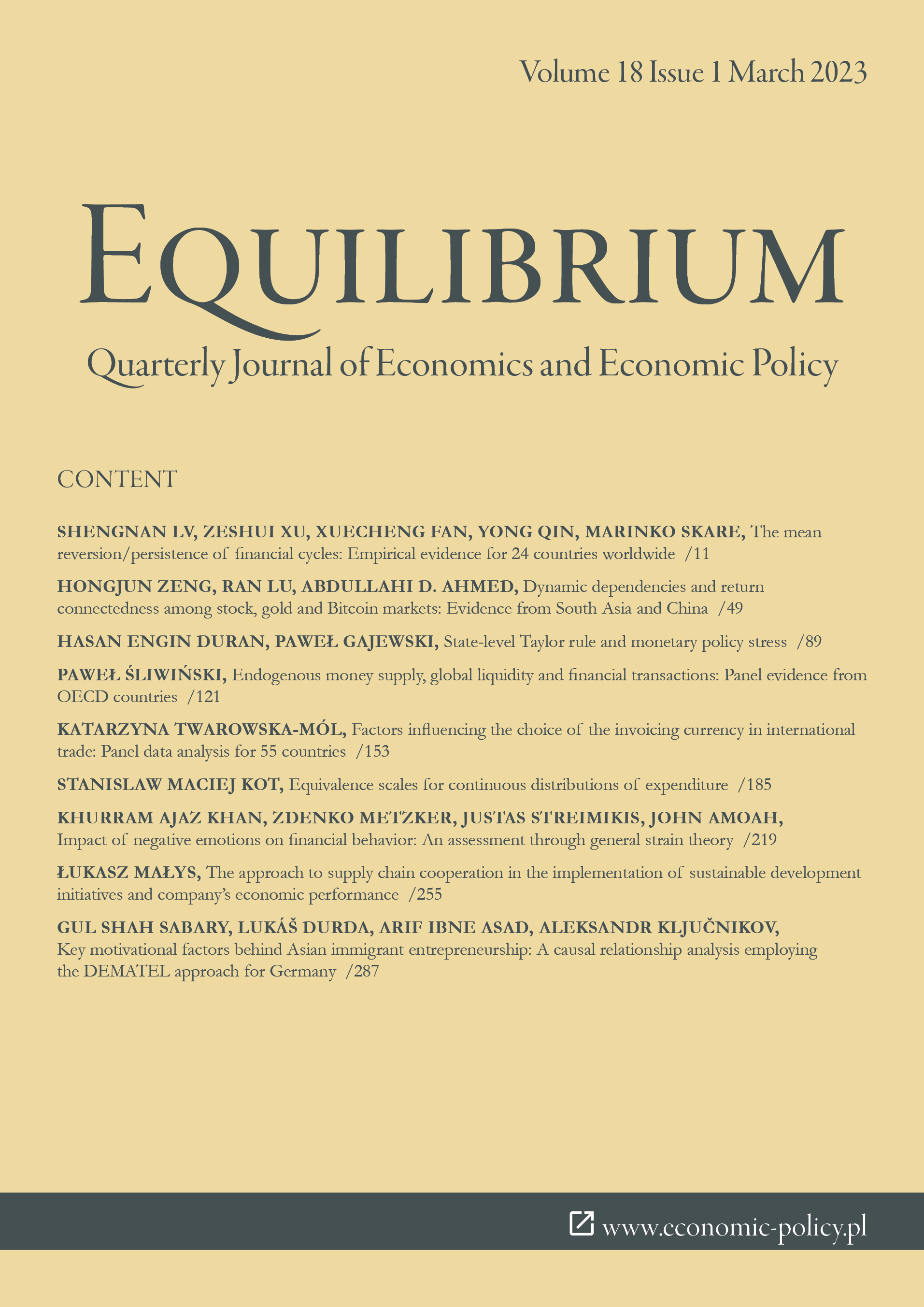The mean reversion/persistence of financial cycles: Empirical evidence for 24 countries worldwide
The mean reversion/persistence of financial cycles: Empirical evidence for 24 countries worldwide
Author(s): Shengnan Lv, Zeshui Xu, Xuecheng Fan, Yong Qin, Marinko SkareSubject(s): National Economy, Marxist economics, Financial Markets
Published by: Instytut Badań Gospodarczych
Keywords: financial cycles; financial connectedness; financial crisis; systemic risk;
Summary/Abstract: Research background: The globalization trend has inevitably enhanced the connectivity of global financial markets, making the cyclicality of financial activities and the spread of market imbalances have received widespread attention, especially after the global financial crisis. Purpose of the article: To reduce the negative effects of the contagiousness of the financial cycles, it is necessary to study the persistence of financial cycles and carve out the total connectedness, spillover paths, and sources of risks on a global scale. In addition, understanding the relationship between the financial cycle and economic development is an important way to prevent financial crises. Methods: This paper adopts the nonlinear smoothing transition autoregressive (STAR) model to extract cyclical and phase characteristics of financial cycles based on 24 countries during 1971Q1?2015Q4, covering developed and developing countries, the Americas, Europe, and Asia regions. In addition, the frequency connectedness approach is used to measure the connectedness of financial cycles and the relationship between the global financial cycle and the global economy. Findings & value added: The analysis reveals that aggregate financial cycles persist for 13.3 years for smoothed and 8.7 years for unsmoothed on average. The national financial cycles are asynchronous and exhibit more prolonged expansions and faster contractions. The connectedness of financial cycles is highly correlated with systemic crises and contributes to the persistence and harmfulness of shocks. It is mainly driven by short-term components and exhibits more pronounced interconnectedness within regions than across regions. During the financial crisis, the global financial cycle movements precede and are longer than the business fluctuations. Based on the study, some policy implications are presented. This paper emphasizes the impact of systemic crises on the persistence of financial cycles and their connectedness, which contributes to refining research related to the coping mechanisms of financial crises.
Journal: Equilibrium. Quarterly Journal of Economics and Economic Policy
- Issue Year: 18/2023
- Issue No: 1
- Page Range: 11-47
- Page Count: 37
- Language: English

